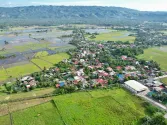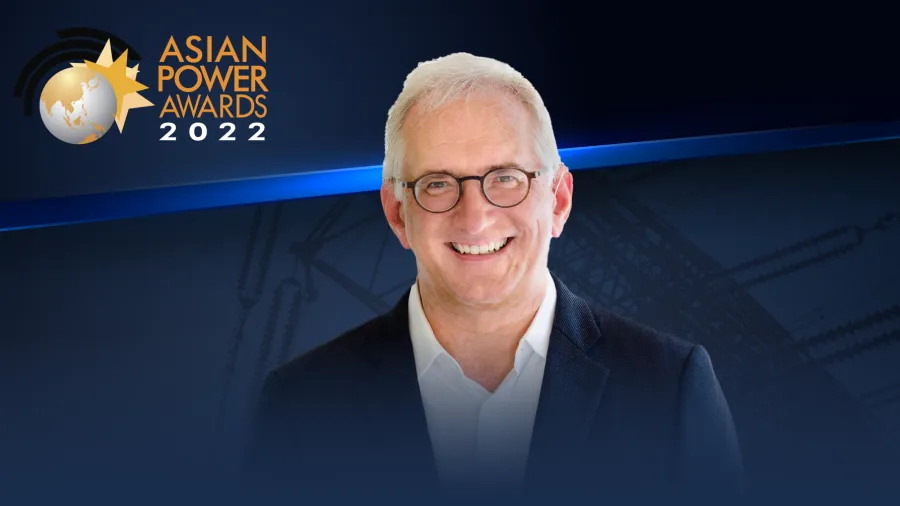
Energy transition depends on quickly pushing out built conventional technologies, says The Lantau Group partner
Mike Thomas noted that the transition is driven by commercial realities that see technologies competing effectively.
Mike Thomas is a founding partner at The Lantau Group. With over 30 years of consulting experience, mainly focusing on the energy sector, he has led significant engagements involving the robust application of economics and analytics to a wide variety of business, policy, and regulatory challenges affecting the electricity and gas sectors.
Thomas advises a wide range of energy sector stakeholders on strategic, regulatory, and competition matters; sustainability; market design and development; and commercial transactions. He works extensively with multinationals on sustainability strategies, focusing on the best options in different markets, and on the regulatory and policy changes needed to support increasing renewable energy contracting options.
In terms of energy transition initiatives, Thomas said those importing coal or gas are seeing commodity market price disruptions, partly due to the European gas situation and the Russia-Ukraine war, but also due to the pressures brought on by the reduced outlook for new coal capacity compared to before.
“Reducing outlook means reducing investment in new coal export capability, industry downsizing and consolidation, and a reduced likelihood of supply gluts driving prices down. We’ll see, but commodity coal prices may well be at a new normal for quite some time – a risk that may accelerate the energy transition even,” he said.
Speaking with Asian Power, Thomas provided insights on the situation of the Asian power markets and the threats these pose to the region’s energy security. He also talked about how the adoption of renewable energy can be accelerated amidst sustainability goals.
What are the challenges currently faced by Asian markets in their energy transition?
Market exposure varies widely, but everyone importing coal or gas is seeing commodity market price disruption. They would see some of this even without the energy transition, as it is partly due to the European gas situation and the Russian war on Ukraine. But some of it is the coal sector, which is clearly pressured by the energy transition given the reduced outlook for new coal capacity (greenfield) compared to a decade ago.
Other risks may be even more important going forward. The investment environment has become more uncertain. Policy and regulatory risk flow from the fact that decarbonisation frameworks are still evolving. On one hand, the energy transition is driven by commercial realities that see new technologies competing effectively with new build conventional technologies. The transition, however, depends not just on how renewable and zero-carbon technologies compete against new-build opportunities, but on how quickly they push out conventional technologies that are already built and operating. This takes us to the next, or perhaps the real, challenge: what does an orderly and secure ‘exit pathway’ look like? The energy transition is not just a “to” challenge, but it is also a “from” challenge. Will exit be forced rapidly by policy, enticed by incentives, or left to uncertain market forces – or some combination of all three, as is more likely? What does this mean for the way complex power systems maintain security, adequacy, and reliability of supply? As we know, if you stress a system too much, too quickly, you throw it out of balance in some costly way or another. It’s in the out-of-balance aspects that you find the problems.
What threats do these pose to the region’s energy security?
There are few phrases so poorly defined and ambiguous in the energy domain than energy security. The buzzword, unfortunately, is energy security and what we need to do about it. I say unfortunately because energy security is one of the phrases where, as Inigo Montoya once famously said: “You keep using that word, I do not think it means what you think it means." Personally, I think it is a really undisciplined word that almost always sows confusion. Are we talking about higher prices for imported fuels? Then yes, that is a risk, but is that a "security" risk or is it energy affordability or energy poverty risk? All around the world, commodity fuel prices have gone up, and yet business (again, until at least now) seems to be powering on. It’s not exactly a “security” risk if the issue is how best to protect vulnerable sectors or people. That’s an equity or equitableness issue that may be amplified by energy prices but no less so than by any other cost of living or cost of doing business factor. We really should stop calling that an energy security risk. Calling something by the wrong name just makes it more difficult to agree to address the right underlying problem. The energy trilemma is a well-intentioned but ultimately muddling and misguided effort to position a complex problem as something that can just be “balanced.” It is just so wrong.
It is certainly a financial problem when utilities cannot pass legitimate costs through and thus start facing ballooning and unsustainable debt. But this is also not an energy security issue. It’s an economic regulation discipline issue and maybe a financial sustainability issue. Things cost what they cost. People and businesses need to pay the associated price, as they broadly do for everything else. Where problems arise because of inability or unaffordability, we are back to the first issue of affordability. Affordability is not the same as energy security. Suppose in the extreme someone can secure a very valuable education by learning to read but needs electricity at night to keep a light on. The electricity is not available or is very expensive. That is not energy security. It is energy access. Or it is affordability which is a financial issue because the whole premise is that it is valuable to use electricity. It is not energy security. Almost never is the cost of energy a true security issue. It is often called that though. It’s just not the type of problem for which ‘security-style’ solutions are the most effective solutions.
It is more useful to think of energy security as a physical issue – is there enough resilience, flexibility, redundancy, storage, and access to alternative markets to ensure that the energy that I need and that I place a high value on will be there for me at some price? If the price is high, I certainly won’t turn off the traffic lights or the hospitals, but I can start using less in other ways. The point is, that we are used to the energy that is quite cheap relative to the value we get from it. When energy is not quite so cheap, we are still getting high value from it. At the moment, the energy crisis has reached a point where the cost of electricity and energy, in general, have increased so much and so fast that the situation has become quite dire and has required or compelled governments to step in. In some cases, the step-ins deal with physical aspects—to ease constraints, increase options, or accelerate investments—but in others, it is more about enabling the sudden extreme increase in costs to be recovered over a much longer time frame, such as by capping tariffs and using taxpayer funds to bridge the gap—funds that can be recovered over future generations in the same manner as financing the recovery from a natural disaster or a war.
The more important energy security concepts are the ones that matter at the planning stages – what flexibility, resilience, alternatives, processes, and mechanisms, amongst others, are needed to keep valuable energy available to be used without blackouts and brownouts, which are hugely more costly. With changing climate conditions apparent, the planning factors for hydro resource management and use as well as projections of potential temperature-sensitive peak demand are arguably at risk of being obsolete. How to reset them going forward when we have long relied on historical data to calibrate future expectations? Also, what externalities, and what future concerns should be brought into the markets and regulatory and policy processes today? That’s something more people are starting to look more closely at. In regulated markets, the concept is to integrate all things that matter into the solution identification process. In competitive or merchant markets, the issue is the same: to ensure that all attributes that have value or that impose cost are present in the market to be weighed and measured by those making choices. Increasingly, we see gaps in both the regulated and market-based approaches.
There’s a great quote in Charles Dickens’ book David Copperfield that goes, “Annual income twenty pounds, annual expenditure nineteen nineteen and six, results in happiness. Annual income twenty pounds, annual expenditure twenty pounds ought and six, results in misery.” So it goes with energy security. A system with sufficient resilience to make it through will keep the lights on, even at a higher cost. If the costs of responding to a situation are truly exceptional, then there will need to be some way to finance recovery from that situation. Invariably, that means spreading cost recovery over a much longer period of time or a much larger base of stakeholders. Some degree of financial failure is part of this process. Truly exceptional situations will almost always trigger government intervention. The question is then what will be left behind after the intervention occurs—what will be the new, ‘new normal'?
To ensure energy security, what are the emerging sectors that Asian markets could tap into to maintain enough supply to meet consumer demand?
One can imagine policy interest in renewable energy will increase as a reaction to higher and more volatile commodity fuel costs. One can further imagine that commercial investors will be more uncertain about committing capital in merchant markets due to rising costs and accelerating energy transition-related uncertainties. One can imagine further still that governments will be tempted to play in the energy sandbox, directing, supporting, requiring, owning, or operating new energy assets. At some point, though, storage has to come more strongly into the equation, though few markets have commercial frameworks that support energy arbitrage-based storage assets robustly. It would be easy to do very expensive versions of the ‘hydrogen solution’ right now, locking in super high costs for decades. Will the pendulum swing that far that fast? I would not be surprised to see costly, regrettable actions were taken during this very unsettling and very tempting period when governments step outside normal planning and evaluation processes or markets to simply seek to ‘do something’ (almost anything).
How can the adoption of renewable energy be further accelerated this year? What RE sector has the most potential to grow in the region?
Hard to pick a year that is more favourable for accelerating renewable energy interest. We’re seeing advisory activity across all types and locations (grid, roof, land, sea). [We are] seeing more hydrogen discussions and a lot more battery storage. So far, batteries are more focused on the smaller ancillary services markets. The pivot point into true energy timing arbitrage is yet to come, but soon.
As a judge in the Asia Power Awards, what projects or innovations are you expecting to find amongst the entries?
There’s always something. I like being surprised. For a few years, it seemed that the innovations were largely in the packaging of the words describing conventional projects dressed up in some innovation language. Prettier substations with flowers on the roof are nice, don’t move the needle in the innovation space anymore. This year, I am expecting to see a very strong focus on more extreme efficiency, more first-or-few-of-a-kind technology applications, and some innovative fuel blending and decarbonisation strategies. Who knows? We’ll see.
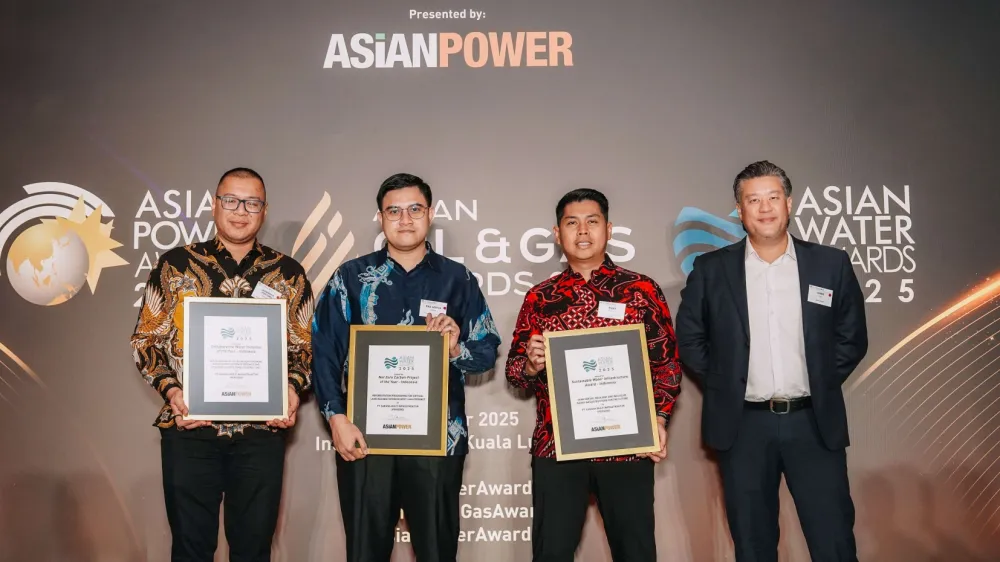

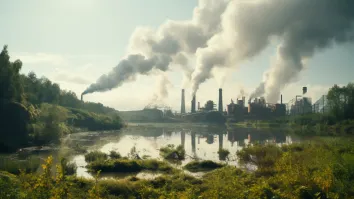

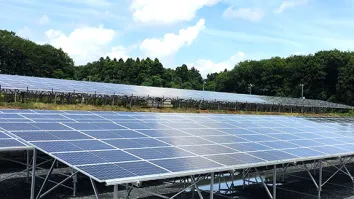
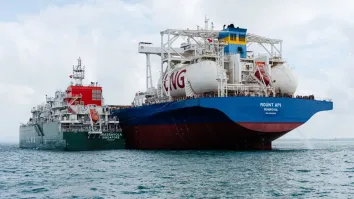













 Advertise
Advertise


